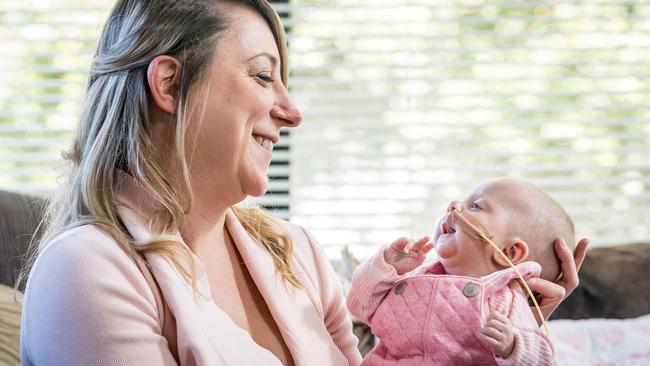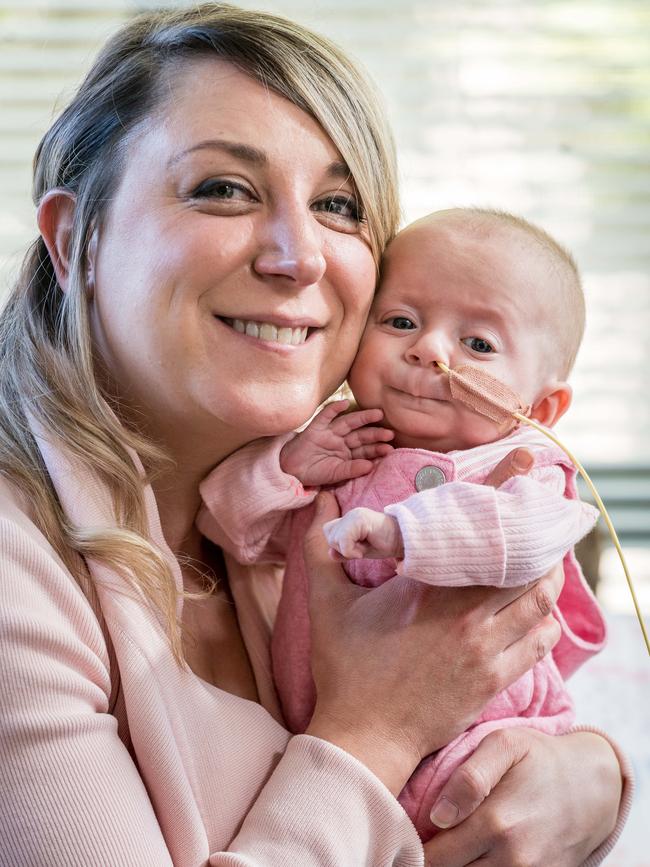Delivery determines baby gut bacteria, research finds
Whether you have a C-section or natural birth will determine the makeup of your baby’s gut bacteria, with the crucial microorganisms linked to the development of everything from obesity and diabetes to allergic and auto-immune diseases.

News
Don't miss out on the headlines from News . Followed categories will be added to My News.
Babies born naturally have different gut bacteria than those delivered by caesarean, new research has found.
In the largest study into newborn microbiota, Melbourne researchers found that babies born vaginally get most of their gut bacteria from their mum’s gut — not the birth canal.
C-section infants, however, carry more bacteria commonly found in a hospital environment, including those with antimicrobial resistance.
Lead researcher Dr Samuel Forster from the Hudson Institute of Medical Research, said they were now preparing to recruit 20,000 babies to further look at the ideal make-up of gut bacteria, and see if this initial difference in the newborn period affected long-term health.

If so, it paves the way for treatment in the first few days of life to correct the bacterial mix.
This collection of trillions of microorganisms in the gut are becoming implicated in the development of everything from obesity and diabetes, to allergic and auto-immune diseases.
“At this stage we know that there are striking differences between the two groups. But it may well be that there are benefits of both bacterial communities,” Dr Forster said.
“We use probiotics already. If we knew the right window and what we should be putting in, then we could help the baby develop the optimal immune system.”
The Hudson Institute and Wellcome Sanger Institute, studied gut bacteria from 600 UK babies over the first 21 days of life via stool samples. They were tested again at eight months of age.
While the mix of bacteria was similar when the children reached infancy, there were clear differences in that first month after birth between the two delivery methods.
The findings were published today in the prestigious journal Nature.
MORE NEWS:
ULTIMATE SCHOOL HOLIDAYS GUIDE
THE FASTEST GROWING SCHOOLS REVEALED
“We know babies are sterile at birth, so whatever bacteria gets in first is going to colonise and what you see first may actually matter,” Dr Forster said. “That’s what we want to find out.”
Monash Health obstetrician Kirsten Palmer said previous studies had shown that infants born via caesarean were more likely to have issues like asthma and allergies later in life.
But given it was not yet known if a newborn’s composition of gut bacteria affected their future health, the study would not yet influence delivery decisions.
Amy Biernacki gave birth to daughter Sienna by emergency caesarean at 32 weeks four month ago when her baby — then weighing 665g, and the size expected at 24 weeks gestation — stopped growing.
“We didn’t have a choice, they had to deliver her on the spot,” Ms Biernacki said.
“It would be really beneficial to intervene early on for babies like Sienna. Premmie babies particularly need extra help from the start.”


